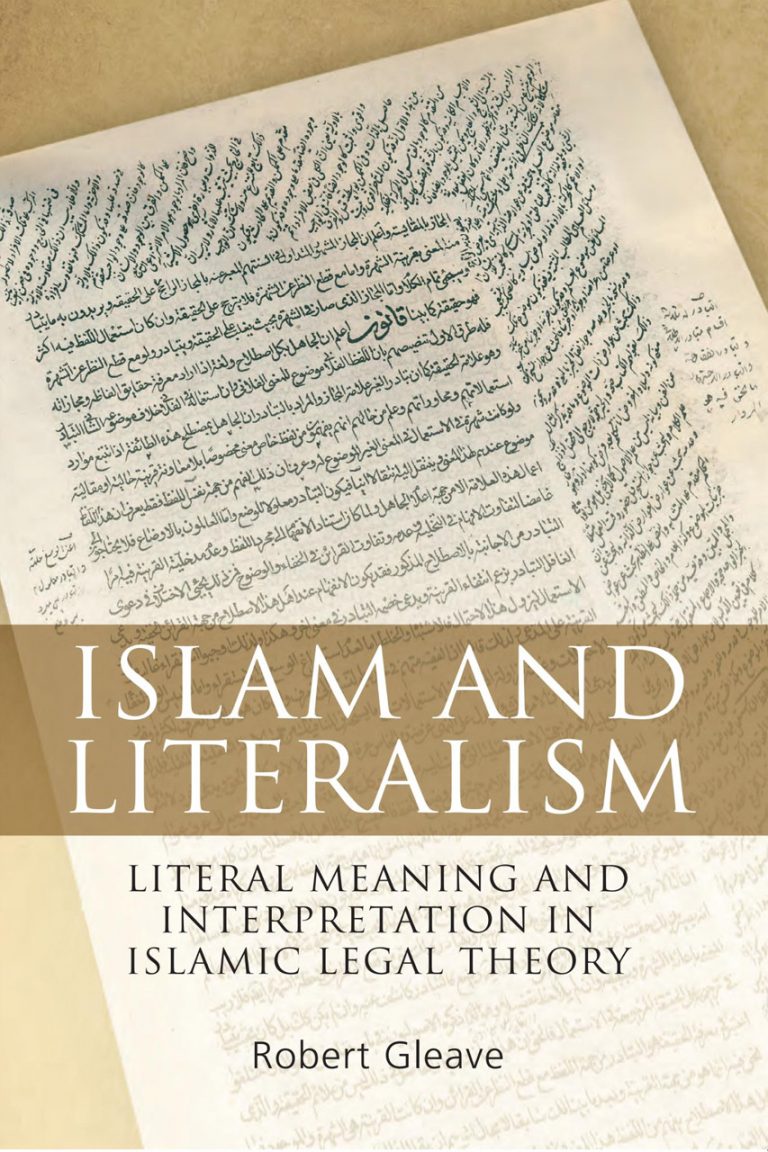Islam and Literalism: Literal Meaning and Interpretation in Islamic Legal Theory
July 25, 2023 2023-07-25 20:12Introduction
Literal meaning is what a text means in itself, regardless of what its author intends to convey or the reader understands to be its message. The idea of literal meaning, together with insights from modern semantic and pragmatic philosophers, informs this reading of Islamic legal hermeneutics.
Robert Gleave explores various competing notions of literal meaning, linked to both theological doctrine and historical developments. The idea of a text’s literal meaning that rules over human attempts to understand God’s message has become an element in discussions about who has the authority to interpret the revelatory texts, and how they can identify this meaning. This has resulted in a series of debates over the processing of legal meaning amongst modern Muslim legal theorists, which centre on the importance of defining, identifying and promulgating the literal meaning of the central texts of Islam.
Key Features
- Focuses on Islamic legal writings, with reference to Quranic exegesis (tafsir) and Arabic rhetorical works
- Describes Muslim debates through the lens of modern Western linguistic philosophy
- Structured chronologically along the lines of the development of Muslim conceptions of literal meaning
Reviews
Rumee Ahmed, Journal of the American Oriental Society:
“Gleave’s close textual analysis, attention to nuance, and theoretical acumen allow for a robust debate about the nature of Islamic legal theory in light of literary theory with the potential to enrich both. This leads to the tantalizing prospect that uṣūl al-fiqh might contribute something important and essential to modern literary theory. Gleave has elevated the discourse about uṣūl al-fiqh, adding theoretical sophistication to studies within and, one hopes, beyond the genre.”
Rolin Mainuddin, North Carolina Central University, Middle East Media and Book Reviews:
“Listing hermeneutic nuances was helpful; specific Qur’anic examples were insightful. The bibliographic technique of key reference followed by full citation was innovative and useful. Lucidly written and well-researched, Islam and Literalism is an invaluable contribution. It is a must read for graduate students and scholars interested in usul al-fiqh.”
Table of Contents
- Preface
- 1. Understanding Literal Meaning
- 2. Literal Meaning and Scriptural Exegesis
- 3. Literal Meaning In Early Muslim Thought
- 4. Literal Meaning in Early Muslim Jurisprudence
- 5. Literal Meaning in Sunni Jurisprudence
- 6. Legal Literalism and Early Zahiri Legal Thought
- 7. Literalism and Ibn Íazm’s Legal Theory
- 8. Literal Meaning in Early Sectarian Legal Theory
- 9. Literal Meaning in Classical Imami Legal Theory
- 10. Literal Meaning in Modern Muslim Legal Theory
- Conclusions
- Bibliography.
Keywords:
Islam; hermeneutics; literal meaning; Islamic law; Islamic legal theory; Robert Gleave; Islam and Literalism; Edinburgh University Press; philosophy;



